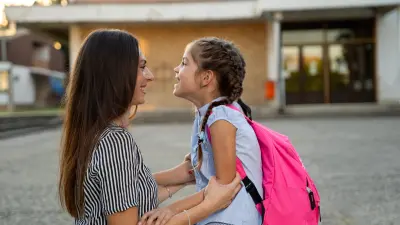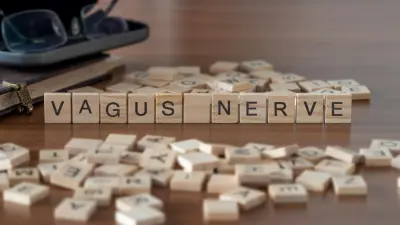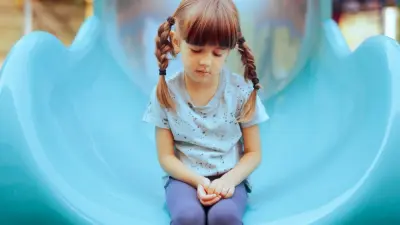Sibling rivalry is as old as time—but that doesn’t mean it has to run your household. If your kids are constantly bickering, battling for attention, or pushing each other’s buttons, you’re not alone. Conflict is a normal part of any sibling relationship. The real question is: how can we guide our kids to build bonds that last, not just survive childhood together?
In this episode of the Mindful Mama Podcast, host Hunter Clarke-Fields speaks with sibling expert Dr. Jonathan Caspi—professor of Family Science and Human Development and author of Raising Loving Siblings—about what really drives sibling relationships and how parents can help shape them in healthy, lasting ways.
These eight actionable strategies are backed by research and built for real family life. No punishments, bribes, or lectures—just connection, communication, and calm leadership.
Why Sibling Relationships Matter
“Siblings are more influential in regard to who we are than anybody else in our life. If you had different siblings, you’d be a different person.” — Dr. Jonathan Caspi
Studies show that strong sibling bonds can lead to:
- Better emotional regulation and mental health
- Stronger adult relationships and marriage satisfaction
- Increased resilience during family disruptions like divorce
- Even higher career success and life satisfaction
8 Real-Life Strategies to Raise Siblings Who Actually Like Each Other
1. Expect Conflict—It’s Part of the Process
Conflict isn’t a red flag—it’s a reality. Learning to live with and relate to a sibling builds the very foundation of emotional and relational intelligence. The key isn’t to eliminate arguments—it’s to teach your kids how to manage them respectfully.
“To think that your children are not going to fight with each other is fantasy.” — Dr. Jonathan Caspi
2. Stop Playing Referee
The more you step in and try to “fix” sibling fights, the worse they tend to get. Third-party interference creates imbalance, resentment, and power struggles.
Instead of taking over, guide your children through resolving the issue themselves:
- “What’s going on here?”
- “What do you need from your sibling right now?”
- “How can we solve this together?”
3. Avoid Taking Sides
Even well-meaning phrases like “You’re older, you should know better” can create deep resentment and damage the sibling dynamic. Don’t label one child as the victim and the other as the aggressor—focus on the interaction and teach skills, not blame.
4. Catch and Reinforce Positive Moments
Parents often wait until the yelling starts to intervene. But the 20 minutes of peaceful play beforehand? That’s when real connection is happening—and it’s often ignored.
“If the good behavior is what gets your attention, it gets reinforced.” — Dr. Jonathan Caspi
Call out kindness, teamwork, and respect in the moment:
- “I noticed how you shared your game. That was so thoughtful.”
- “Thanks for helping your sister with that—what a great teammate!”
5. Teach Clear Conflict-Resolution Skills
Kids don’t instinctively know how to say, “Can I have a turn when you’re done?” or “I’m upset—can we talk about it?” Those are learned skills. Teach simple, clear language your kids can use to navigate conflict. Role-play during calm moments and praise them when they use their words instead of their fists.
6. Let Each Child Be Their Own Person
Siblings often differentiate themselves—especially when they’re close in age. This is called de-identification, and it’s healthy. Avoid comparing kids to one another or forcing shared interests.
“Children carve out their identity in relation to their siblings. Let them own their path.” — Dr. Caspi
7. Create Shared Experiences
Connection is built through shared moments—family hikes, board games, inside jokes, and even sibling chores. While vacations can be chaotic, they also offer opportunities for bonding outside the normal routine.
Aim for consistent moments of togetherness that foster inside memories and mutual respect.
8. Model Emotional Regulation
If you lose it every time your kids fight, they’re learning that’s how conflict is handled. Stay calm, show empathy, and walk through the process. When you model patience, problem-solving, and emotional awareness, your kids begin to mirror it back.
“It’s easier to regulate your own emotions when you have a plan. Winging it rarely goes well.” — Dr. Jonathan Caspi
What If My Kid Says, “I Hate My Brother”?
Harsh words are often a cry for help or a sign of emotional overwhelm. Don’t dismiss it—validate their feelings, then circle back to dig deeper.
Try:
- “That’s a strong feeling. Let’s talk about what happened.”
- “Do you feel like your brother gets more attention than you?”
- “How can we make this relationship feel better for both of you?”
Listen with curiosity, not defensiveness.
Bonds for Life
“Siblings are the longest relationships we have. A close sibling bond can boost happiness, resilience, and health throughout life.” — Dr. Jonathan Caspi
You can’t make your kids be best friends—but you can create an environment where empathy, cooperation, and connection grow. These everyday strategies won’t eliminate sibling conflict (nor should they!), but they will help your kids feel safe, seen, and supported within their sibling dynamic.
And who knows? With a little guidance, they just might turn out to be lifelong friends.
Learn More:
Raising Loving Siblings by Dr. Jonathan Caspi
siblingexpert.com








Leave a Reply